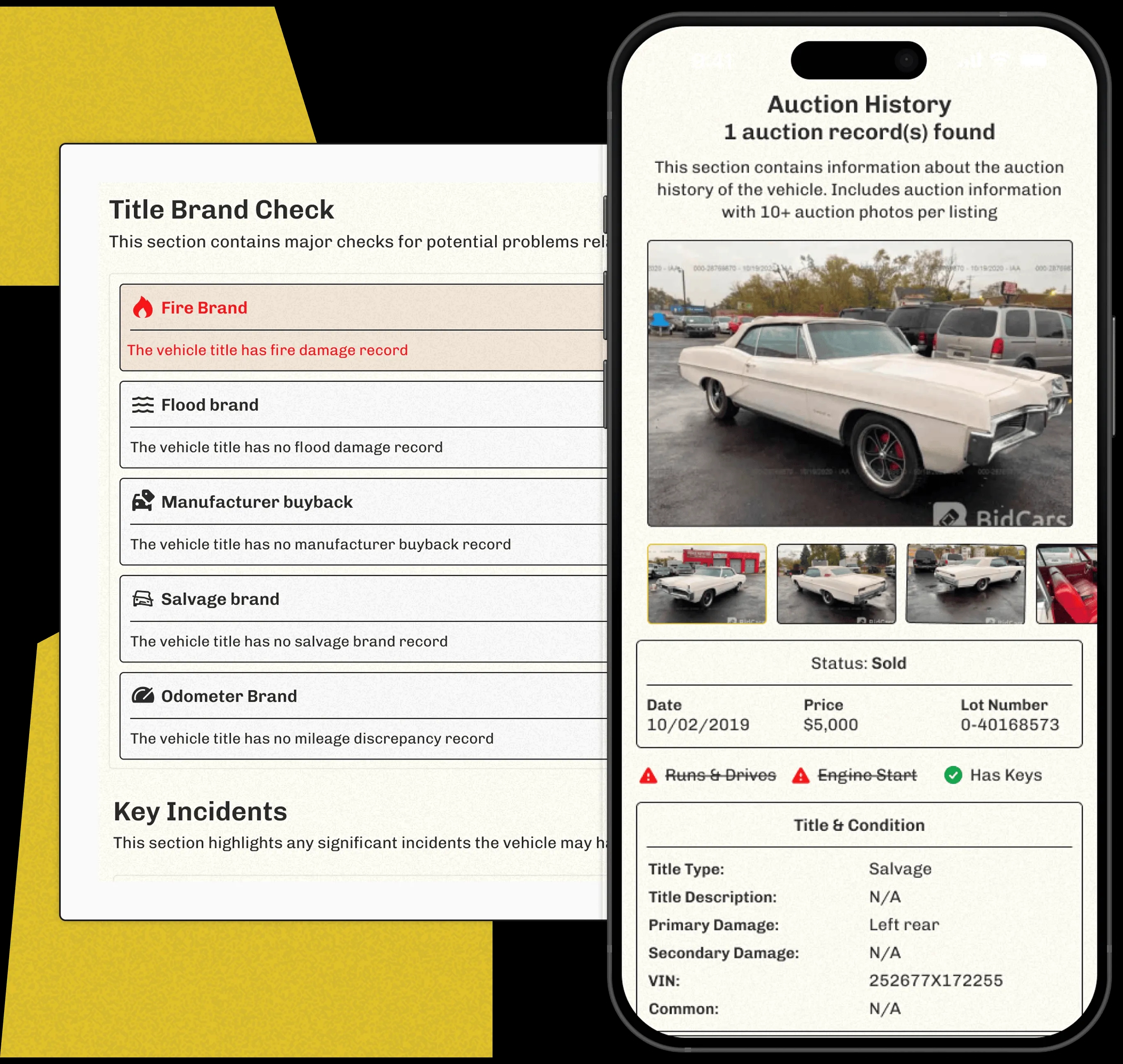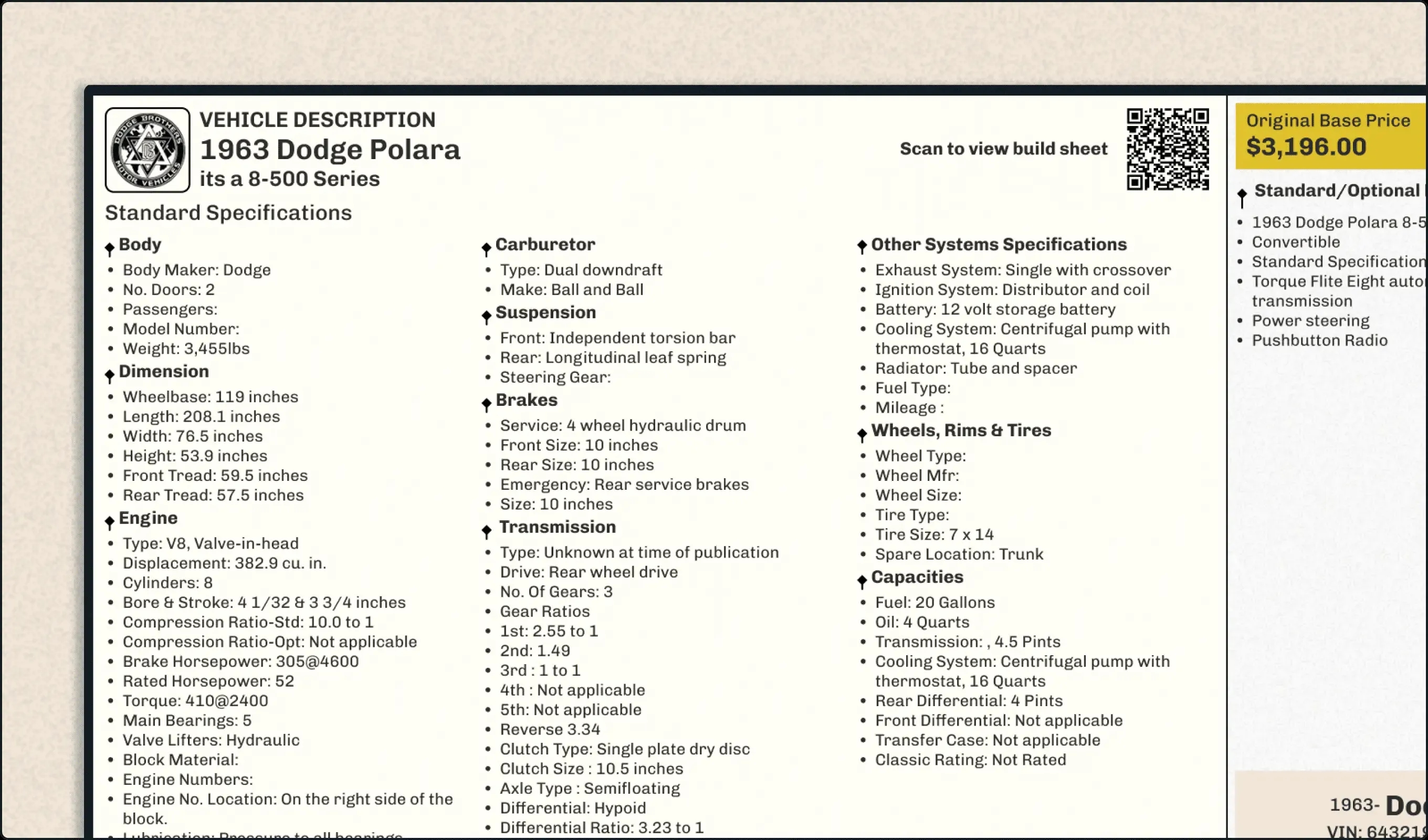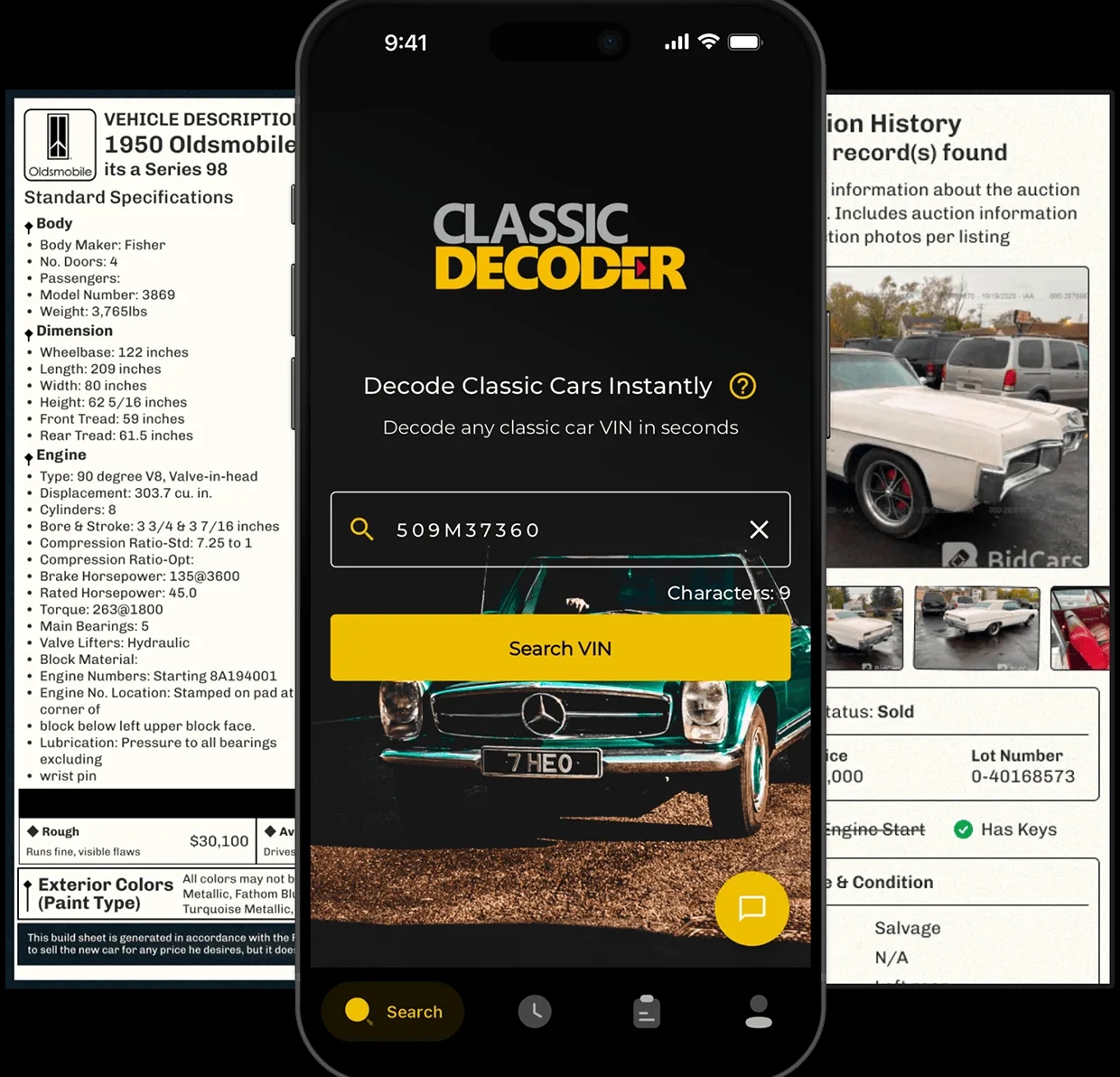1972 Plymouth Satellite
The '72 Plymouth Satellite: a cool, classic muscle car! Think boxy, but stylish, embodying the era's love of big cars. A solid performer, it wasn't the top dog but held its own. Part of Mopar's lineup, it reflects the changing auto landscape of the early 70s. A true American icon!
Decode Classic VINs to Get Vehicle History Report and Build Sheet
The 1972 Plymouth Satellite: A Blast from the Past
The 1972 Plymouth Satellite isn't just any car—it's a quintessential piece of muscle car history. We find ourselves looking back to a time when American automotive design was at its peak, juggling performance, style, and practicality like it's nobody's business. Picture yourself cruising down a sunlit road, the muscle under the hood humming with power. It's not hard to see why this model still sparks joy in enthusiasts' hearts.

1972 Plymouth Satellite Models:
Select the vehicle's model to see the correct data for it.
How Much is Plymouth Satellite Worth?
Original MSRP :$3,112.00
Outstanding
Clean
Average
Rough
1972 Plymouth Satellite Specs
Interested in buying a classic car or selling one?
Access detailed history reports for classic vehicles from hundreds of manufacturers.
- Accident Records
- Theft Records
- Loan & Lien Information
- Auction Information
- Salvage Information and more

History of the 1972 Plymouth Satellite
Driving through the history lane, the Plymouth Satellite was initially a variation of the Plymouth Belvedere. It went through the wringer of redesigns over the years, aligning with changing tastes and consumer demands. By 1972, the Satellite was available in a variety of body styles—hardtop, convertible—you name it【4:0†file】. This wasn't just a car, it was a response to the evolving American dream, reflecting broader shifts in automotive aesthetics inspired by competitors like the Ford Galaxie.
Learn more about a classic car: Get Build Sheet by VIN.
Access reproduced classic build sheets to learn more about your classic vehicle details.
- Standard Specifications
- Original Base Price
- Standard & Optional Equipment
- Exterior & Interior Colors
- VIN ID & Location description

Specifications of the 1972 Plymouth Satellite
Talking specs, this bad boy wasn't just about looking good. With V8 engine options, it didn't just compete; it conquered. Some variants could do 0 to 60 mph in under 7 seconds【4:3†file】. With a top speed lingering around 113 mph, the Satellite held its ground against some of the best in the business.
Famous Figures Who Own the 1972 Plymouth Satellite
Bruce Campbell
Actor and filmmaker Bruce Campbell, famous for his role in the "Evil Dead" franchise, apparently had a soft spot for the 1972 Plymouth Satellite. The car's mix of muscle and practicality made it appealing to someone who likely appreciates a good blend of action and performance【4:2†file】.
Billy Joel
Then you have musician Billy Joel, a known car aficionado. His choice of the Satellite highlights its cultural significance. The man appreciates stories, and this car, well, it's full of them【4:2†file】.
Other Celebrities
Let's not forget the broader swath of Hollywood that's dabbled with the Satellite. Its appearances in films and TV shows like Life on Mars and What Happens in Vegas... are testimony to its enduring appeal【4:3†file】.
1972 Plymouth Satellite Gallery


Speed Records and Performance
Underneath the hood, the Plymouth Satellite wasn't just brawn. Its performance specs were quite the marvel of its time. Variants with high-compression V8 engines—those could achieve quarter-mile times in the 13-second range. Talk about fast and furious!【4:3†file】
Pop Culture Impact
From The Brady Bunch to modern TV series, the Satellite has been more than just a car; it's been a pop culture icon. It symbolized adventure, bridging the gap between family practicality and muscle car thrill【4:3†file】.
Price Trends
In the world of classic cars, the Satellite's value dances up and down depending on condition and rarity. We're talking prices in the ballpark of $29,995 to $40,995 as of the last reckon【4:2†file】. Not the cheapest, but for the story it tells? Worth every penny.
Interested in Buying or Selling a Classic Car?
Whether you're buying or selling, knowing the history of a classic car is crucial. Let me tell you why you should check out a vehicle history report and car build sheet. Here's why:
Accident Records
Theft Records
Loan & Lien Information
Auction Information
Salvage Information and more
When you conduct a or research using a , you access a treasure trove of information about your vehicle. These resources might uncover surprises you're thankful to know before signing on the dotted line. If you've got a pre-1981 model, don't fret! A can also do the trick. Got an older find? Try a or a if that's what you're dealing with.
Whether you're stepping into the world of classic car collecting for the thrill of the find or looking to bring one of these beauties into your garage, there's a rich history waiting. Let the stories behind the wheel drive your journey.
Classic VIN Decoder App |Now available on both Android and iOS!
At Classic Decoder, we believe that developing a mobile app is a great way to extend our classic car data solution hub to as many users as possible across the globe. Our app is built with users and precision in mind. It holds the key to unlocking the history and details of any retro car at your fingertips. It also comes with fascinating and user-friendly features that make it stand out from other mobile apps designed for this purpose.
The Classic Decoder app lets you decode and lookup any classic VIN in a flash. Access accurate vehicle information and history, make an informed decision faster, and buy and trade in classic cars with confidence.

Download The Classic Decoder App now.
Some unique features include:
- Support all classic VIN lengths from 5 to 13 digits
- Support classic cars produced from 1910 – 1980
- Online Garage features – to add and manage your vehicles
- 24/7 Customer Support
- Easy onboarding for first-time users
Explore Plymouth Satellite from Other Years
Frequently Asked Questions
The '72 Satellite? Man, it was a real looker. Think sharp lines, that distinctive, almost aggressive, front grille, and a generally boxy profile that was totally in style back then. You know, kinda like a really cool brick, if bricks could cruise. Beyond the styling, though, mechanically speaking, there were a few variations depending on the trim level; some had a hefty 318 cubic inch V8, others boasted even more powerful engines—the 400, for instance, was a real beast. And let's not forget the Road Runner version, a real muscle car icon if there ever was one; now those are prized among collectors! Bottom line: it's a blend of style and powerful engines that set it apart from the competition.
Okay, so engine choices were pretty varied for the '72 Satellite. You had your standard six-cylinder—a workhorse, if a bit underpowered for some—then you move up to the V8s. You're looking at the 318, a solid performer; a 340, more punch; and then, the real heavyweight champion: the 400. That 400 was a real monster under the hood, seriously impressive, but it also guzzled gas like it was going out of style—which it kind of was, haha. So your choice really depended on what you wanted: respectable fuel economy or raw power. It's a classic case of 'you can't have your cake and eat it too,' but with a really powerful cake.
Well, condition is everything, really. A pristine, low-mileage, numbers-matching '72 Satellite? You're talking serious money—we're in the realm of tens of thousands of dollars, easily. But, uh, you know, a beat-up project car? It's gonna be a different story altogether. Things like the engine—a numbers-matching 440 is a huge plus, for example—the transmission, any rust issues…it all adds up. The rarer options, like specific paint colors or interior choices, are another major factor, too, inflating the value significantly. It’s like buying a house; location, upgrades, and condition all play a crucial role in determining the final price tag. So, do your research, and you'll get a feel for what you can expect to pay. Don’t just jump the gun, you know?
Like any classic car of that era, the '72 Satellite isn't immune to issues. Rust, sadly, is a common problem, especially in areas with harsh winters. You'll want to check the bodywork carefully. The electrical system can also be temperamental; these old cars have their quirks, especially when things are not well-maintained. And the carburetor—oh boy, carburetors can be a real pain sometimes. It’s a bit of a learning curve, but with regular maintenance and careful attention to detail, and, you know, maybe a dash of luck, you can keep those things running sweet as a nut. Remember, preventative maintenance is key to keeping your beauty running smoothly. Trust me on this.
Finding parts for a classic Mopar like the '72 Satellite is easier than you might think, these days, thanks to the internet. Online retailers specialize in classic car parts, and many local auto parts stores can also assist you, to a lesser extent. Plus, there's always the option of salvage yards, which can be a treasure trove of parts if you're patient. It's often a bit of a treasure hunt; you can find some amazing things, but it takes some digging—it’s kinda like online shopping, but with more greasy fingers and the smell of engine grease! You gotta love it, though. So, buckle up and happy hunting!

